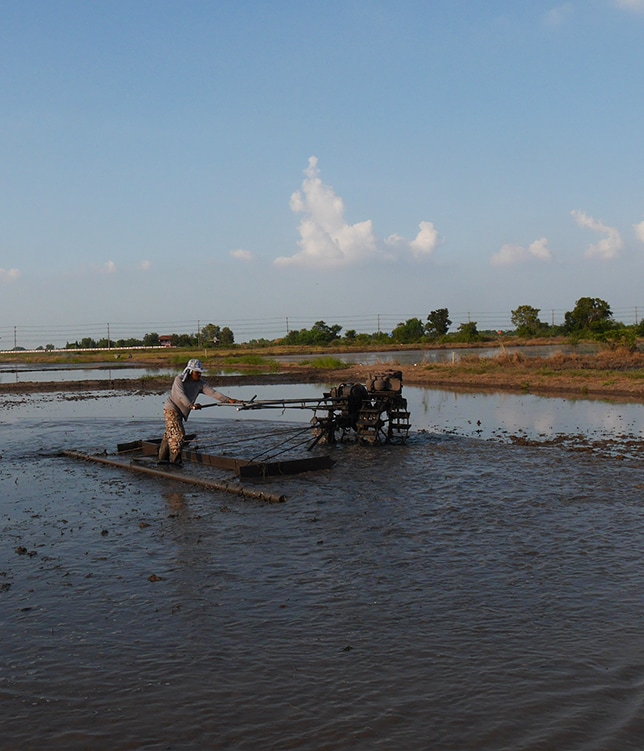Environment Policy
SUMERNET 4 All is presently drafting an “Environmental Policy for Researchers” that will be finalized and available on this website soon. Below are some excerpts from the latest version.
What is it?
SUMERNET is committed to the principles of environmental sustainability and the protection of the environment in all our activities. In this phase of SUMERNET 4 All, we are introducing an “Environmental Policy” that sets out measures by which the 15 selected research projects integrate environmental perspectives in their research and project activities and take actionable steps to make their activities more “environment-friendly”.
Purpose of this policy
S4A aims to a. make researchers become more aware of, and attempt to minimize, the negative impacts of research projects and activities on the environment b. reduce our contribution to pollution (air, water and CO2) c. improve our efficiency in the use of natural resources (e.g. energy, water, or paper).
S4A aims for continuous improvement to minimize the negative environmental impacts from all our activities through reducing consumption, saving energy or making energy-use more efficient, and minimizing waste and pollution.
Are there practical actions to follow?
The policy identifies simple steps for greening your practices in conducting research, for example in the areas of waste or energy savings and CO2 emissions, and how to become aware of the impact of your actions on the environment
Expectations
By following this policy, S4A expects that researchers will become more aware of the environmental choices made when undertaking the research project: how do you plan projects, what kind of activities do you undertake or to collaborate that may be wasteful of energy (airconditioned hotel rooms), or polluting of the environment (disposable plastic for water and food). How - and how often – you travel, and the means of travel that could help minimize environmental impacts.
Steps to take for environmental sustainability in research
- Reduce water use; ensure water is not wasted and improve water conservation in research activities and events.
- Reduce or eliminate use of single-use, disposable plastic: plastic water bottles, plastic bags, straws, coffee stirrers, soda and water bottles and food packaging. Use reusable bottles and glasses (without straws) for drinking water at events.
- For village meetings or research activities, ensure to purchase local food from villagers and local vegetable gardens. Supporting local farmers can not only reduce plastic use but also help reduce transport of food and the associated carbon emissions.
- Waste disposal: ensure waste is separated into reusable (bottles, cups) and biodegradable (food and vegetable waste). During your field work, explore if local farms can make use of the biodegradable waste in their gardens and fields.
- Catering at events: Consider more vegetarian options as a way to reduce meat consumption and related carbon emissions.
- For meetings held at large hotels, seek hotels that have an environmental policy and are demonstrably keen to conserve water and energy.
- Try to improve energy efficiency in your event meeting rooms and accomodation: air-conditioning is extremely energy-intensive. Keeping the thermostat between 22-25 degrees C is a simple way to save energy and reduce power consumption at hotel events.
- Travel: Air travel is the worst emitter of carbon emissions. Reduce air travel. If you need to fly to distant events, seek to maximize opportunities for interaction. Arrange for skype or online meetings as much as possible to eliminate air travel. Try to make sensible choices about flying to events: for example, maybe the organizers require you to fly a large distance just for a quick 20-minute presentation. See if it’s possible to arrange an online presentation.
- Use public travel as much as possible for local transport when doing research.
- Try to implement measures in your own office, or department in the University or research institution towards reducing plastic, and waste in energy, food and water consumption.
- Help to raise awareness about environmental sustainability in research work and these suggested actions among your research colleagues, project partners, and colleagues.
Measuring success
How do you know you’re being effective? Keep a weekly or monthly record if possible of the above activities. How many were possible to be achieved? Take note of where and when it was not possible, check if further measures can be taken for improvement at the next opportunity. Have continuous conversations with your colleagues on these topics and how to improve attitudes and behavior towards the environment.

 Read more about SUMERNET
Read more about SUMERNET
